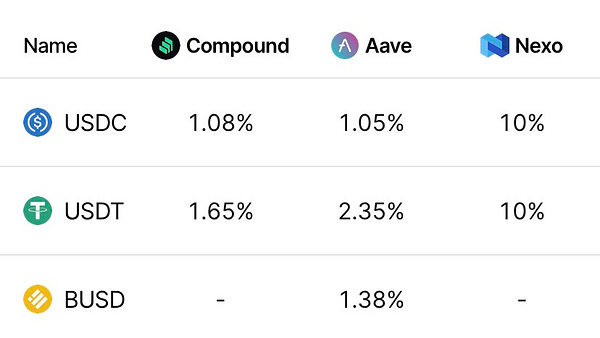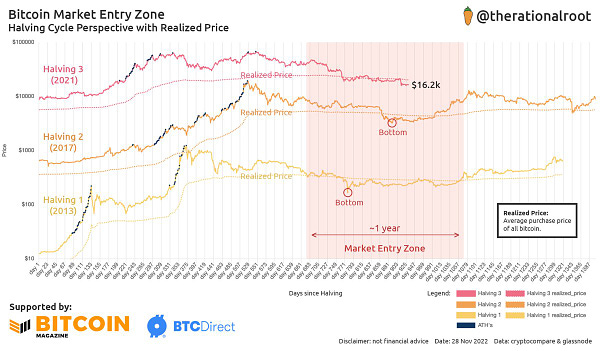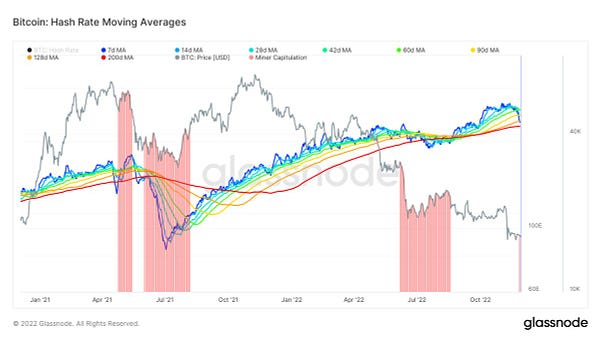Riding The Wave News Summary 99
Kraken Cuts 30% of Workforce Amid Crypto Winter, Brazil passes law to legalize crypto as a payment method, & more
Welcome to Riding The Wave. If you have questions or feedback, please reply to this email. If you are new to the Newsletter, please check out what we provide on our about page and consider subscribing. Within the Newsletter, I provide News Summaries, Weekly Status Updates, & Deep Dive Articles on Specific Topics (Ex: How do I pick which coins/tokens to buy?). More details here
News
Table of Contents
Tweets
Blockchain-based supply chain platform canned by IBM and Maersk
Cardano’s Hoskinson: FTX Collapse Proves ‘Absolute Need’ for Decentralization
Tweets













Kraken Cuts 30% of Workforce Amid Crypto Winter
Crypto exchange Kraken said Wednesday it is laying off 30% of its global staff – around 1,100 people – in response to the crypto market downturn.
"Since the start of this year, macroeconomic and geopolitical factors have weighed on financial markets. This resulted in significantly lower trading volumes and fewer client sign-ups," Kraken said in a blog post.
"We responded by slowing hiring efforts and avoiding large marketing commitments. Unfortunately, negative influences on the financial markets have continued and we have exhausted preferable options for bringing costs in line with demand."
As recently as June, Kraken said it was taking looking to expand as other companies laid off staff, flooding the market with experienced labor, saying it wanted to hire another 500 people. "We have not adjusted our hiring plan, and we do not intend to make any layoffs," it said at the time.
Brazil passes law to legalize crypto as a payment method
While Brazil has not made Bitcoin legal tender as El Salvador did last year, the South-American nation has passed a law that legalizes crypto payments throughout the country.
The Chamber of Deputies of Brazil, a federal legislative body, has passed a regulatory framework that legalizes the use of cryptocurrencies as a payment method within the country. While this makes significant progress for crypto within Brazil, the law still requires the signature of the president of Brazil for it to be enacted.
The passing of the bill does not make any cryptocurrencies legal tender within the country. However, the bill will include digital currencies and air mileage programs in the definition of payment methods that are under the supervision of the country’s central bank.
Back in June, a similar proposal was issued to allow Brazilians to use crypto as a means of payment and protect their private keys from being taken by courts. The proposal aims to make crypto assets a means of exchange and an “instrument of access” to goods, services or investments.
Blockchain-based supply chain platform canned by IBM and Maersk
United States technology company IBM and Danish logistics firm Maersk have decided to discontinue their co-developed blockchain-backed supply chain platform, TradeLens, citing a lack of “global industry collaboration” as a key reason behind the decision.
Maersk stated on Nov. 29 that it has begun taking immediate action to cease operations on the platform, which should take full effect by Q1 2023
Despite TradeLens not reaching the heights that IBM and Maersk first envisioned, the two companies managed to onboard over 150 companies onto the supply chain-focused blockchain, which included a host of port operators, shipping companies and logistics providers.
Among those companies were two of the world’s largest container carriers, CMA CGM and Mediterranean Shipping Company, which integrated the system in October 2020.
The discontinuation of TradeLens comes as data from IBM claims the platform saved users an estimated 20% in documentation costs and reduced the time it takes to ship goods by 40%.
According to Statista, blockchain technology makes keeping data records easier, more transparent, and more secure mostly due to its immutable nature.
Despite this, several shortcomings continue to stall blockchain adoption in the supply chain world, including high transaction costs, privacy concerns, scalability issues and lack of industry collaboration, as evidenced by the lagging adoption of TradeLens.
Cardano’s Hoskinson: FTX Collapse Proves ‘Absolute Need’ for Decentralization
Speaking at the Financial Times Crypto and Digital Assets Summit, Hoskinson said that the crypto industry “has never been stronger in terms of its offerings to the tradfi [traditional finance] marketplace and to the world as a whole,” but that recent collapses such as FTX have demonstrated the need for decentralization and proof of reserves.
“The failures we’re having aren’t failures of protocols, aren’t failures of DeFi,” Hoskinson said. “They’re failures of trust, they’re failures of regulation, they’re failures of people.”
He added that these failures of trust—in both the crypto industry and the traditional finance industry—are driving a shift “from companies and people to protocols.”
Hoskinson also posed the question, “how do we really measure things like resilience and decentralization?”
He said that as part of its partnership with the University of Edinburgh, IOHK (the developer group that maintains Cardano) has started a lab that will create an index to track those metrics.
Disclaimer: The information in this Newsletter is not financial, legal, or tax advice. I only trade on Etoro; if you are reached out to by people requesting you join a group or provide money, it is not me. My only public social media accounts are this Substack page, my Youtube page, my Twitter page, and my Etoro page; any others you see online are not me.






